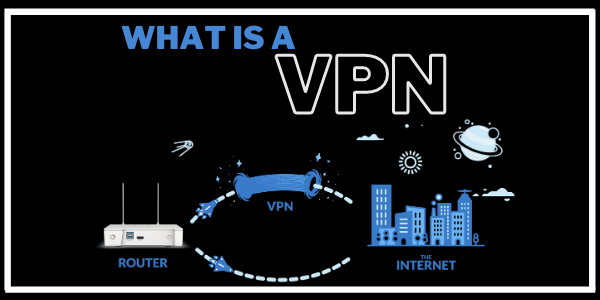
VPN or Virtual Private Network is a cross-platform software that allows you to securely browse the web and bypass geo-restrictions by encrypting your network traffic over public and private internet connections.
While VPNs are mostly used by companies to allow their employees to remotely access corporate networks and resources, VPNs are also widely used for entertainment purposes such as gaming, streaming, and torrenting.
While I hope you now have some basic idea of “What is a VPN,” I’m still going to go all in to this topic and talk about everything there is to know about VPNs.
- What is a VPN connection?
- What can VPN connections be used for?
- How does a VPN work?
- What is a VPN server?
- What is a VPN app?
- Types of VPN
- What does a VPN hide?
- How can a VPN help me stream?
- Why do I need a VPN?
- Why is online privacy important?
- Are VPNs legal in Spain?
- Are there any disadvantages to using a VPN?
- How can VPNs offer me privacy?
- How to choose a VPN?
- Which VPN should you choose?
- Are there any alternative to VPNs?
What is a VPN connection?
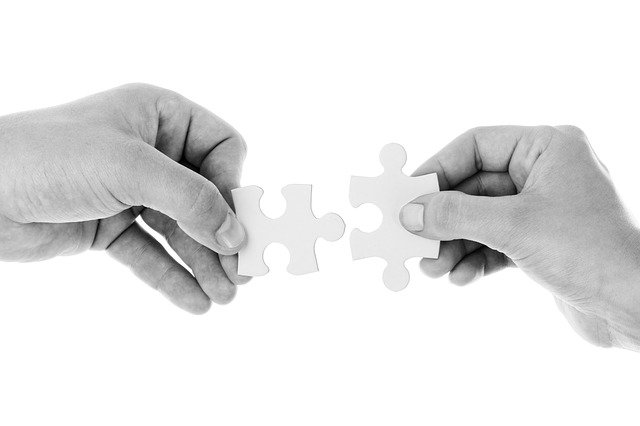
When you connect to a VPN server, your internet traffic gets routed through an encrypted tunnel that nobody can poke through, including hackers and even your internet service provider.
Too technical for you?
In other words, a VPN connection can be compared to an invisibility cloak that can hide your true identity and allow you to get anywhere without getting caught.
Because of growing privacy concerns and increasing online censorship, VPN demand has skyrocketed. More and more people in Spain and around the world nowadays are using VPNs to gain access to restricted websites and overcome internet censorship.
What can VPN connections be used for?
From reading the intro, you now must have some basic idea of what a VPN connection can be used for. But to be honest with you, VPNs have so many use cases.
To dive into today’s topic, let’s check out some of the popular reasons why people use VPNs.
Remote work
Even before the COVID-19 outbreak, VPNs have always been used to facilitate remote employees to securely access their company networks. By forming a secure encrypted tunnel, VPNs pave a secure impenetrable path for remote workers. With the help of a VPN, you can be physically located in Spain but still be able to access company resources in the U.S, as if you’re physically present there.
Bypass censorships and access geoblocked contents
As I mentioned earlier, VPNs are widely used for entertainment purposes as well. Since VPNs can help you spoof your geo-location, you can access any geo-blocked content from anywhere in the world.
For instance, you can be physically present in Spain, but if you connect to a U.S server, you can obtain a U.S IP address—which is more or less like your home address—you can access geo-blocked streaming services like Netflix, Hulu, Disney+, and more.
However, the only catch in this situation is that you have the best VPN that offers highly-optimized US servers that can crack the stubborn algorithms of famous streaming giants.
Securely and anonymously torrenting
Another popular reason why people use VPNs is to download torrents securely and anonymously. If you don’t know, many internet service providers (ISPs) around the world prevent users from P2P file sharing.
While it’s mostly because ISPs want to discourage piracy—which is understandable—another main reason why they don’t want you to download torrent is that they don’t want you to consume too much bandwidth. By analyzing how much data you consume, ISPs can actually throttle your bandwidth at certain peak hours.
But when you use a VPN, you can swap your original IP address and obtain a new shared IP address provided by your VPN service provider. This way, even your ISP won’t be able to identify what you download online. You’ll be able to freely download torrents, even in countries like India where P2P file sharing is prohibited.
Security and privacy
Using a VPN is a great way to stay safe and secure online. When you browse the internet without using a VPN, all of the data packets sent or received over your network stay unencrypted, meaning anyone with a bit of technical knowledge can intercept them and spy on you.
So, in case you access your bank account from your local cafe, you’ll leave a potential loophole for any hacker to exploit.
But when you use a VPN, all of your network traffic will get encrypted. This way, even if a hacker manages to capture a data packet midway, it’ll make no sense and appear as gibberish.
How does a VPN work?
A VPN works by creating a virtual private tunnel between you and the internet. Everything you do online goes through the encrypted tunnel preventing outsiders from knowing what’s going on inside.
Confused?
Picture James Bond escaping from bad guys chasing him with a helicopter. To escape the clutches of the bad guys, Bond drives his car into a tunnel and escapes. A VPN work in a similar manner.

Aside from just tunneling all your network traffic, a VPN masks your original IP address and assigns you a different IP address that can’t be traced back to you.
You can pick and choose any server location of your choice and virtually appear anywhere in the world. By doing so, you can anonymously access all geo-blocked content on the internet.
What is a VPN server?
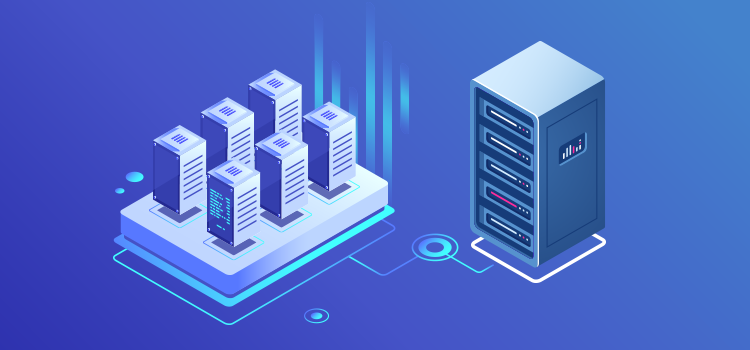
A VPN server is like a middle man that sits between you and the internet. Instead of you accessing whatever website you want to visit with your original IP address, the VPN server does everything for you, leaving your identity totally anonymous.
Normally, when you’re not connected to a VPN server, all your incoming and outgoing network traffic goes through your ISP. This allows your internet service provider to see everything you’re doing online. And since your data is not encrypted, hackers can get a hold of it and wreak all sorts of havoc.
Even if just your IP address gets stolen by a hacker, he/she can then locate your actual geolocation and threaten you in one way or another. Just head over to www.infosniper.net and you’ll see how easy it is to find someone’s actual home address through their IP address.
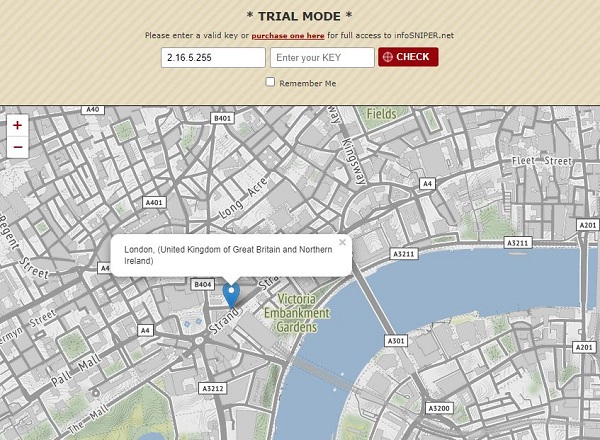
But when you connect to an encrypted VPN server, your original IP address gets masked and your VPN service provider assigns you another IP. This prevents everyone other than you from figuring out your online activities.
What is a VPN app?
A VPN app is basically a small software that you install on your phone, laptop, router, or other compatible devices. Once you have it installed, you can use the VPN app to mask your original IP address and spoof your geolocation to access all sorts of blocked websites securely and anonymously.
Most VPN providers nowadays offer cross-platform apps. This means that you’ll be able to install the VPN apps offered by your VPN service provider on platforms like Windows, iOS, Android, macOS, Linux, and more.
Types of VPN
VPN services can be mainly categorized into two types, Remote Access VPN and Site-to-Site VPN. The VPNs that you and I use every day to watch Netflix or browse the web securely fall into the category of Remote Access VPNs. Site-to-site VPNs on the other hand are commonly used by businesses to allow employees to connect to their organization’s network remotely.
Now, I’m going to go into too much detail here because we’ve already covered a complete guide explaining different types of VPNs, feel free to check it out.
What does a VPN hide?

A VPN can hide a lot of personally identifiable information about you and make you pretty much invisible on the internet. To give you a better idea of what I’m talking about, let’s check out three things a VPN can help you hide.
Hides your online activities
When everything you do online gets passed through an encrypted VPN tunnel, no one outside the tunnel can see what you’re up to online. Once you connect to a VPN server and your IP address gets masked, not even your internet service provider will be able to trace your online activities back to you.
Hides your IP address and geolocation
Think of your IP address as your home address. If anyone knows your IP address or intercepts it online, they can explicitly tell what you do online and trace your activities back to your actual home address.
Scary right?
But when you use a VPN, your VPN service provider assigns you a different IP address that doesn’t belong to you. By doing this, no matter what you do online, no one will be able to trace your activities back to you.
Hides your location so you can stream freely
Some streaming services and channels only work in certain countries. Hulu for example only works in the U.S. If you travel outside the country, you won’t be able to watch any content because of annoying licensing issues. But with a VPN, you can connect to any server location of your choice and virtually appear anywhere in the world. This will allow you to unblock any streaming service you can imagine.
How can a VPN help me stream?
Ever wondered how popular streaming services know where you’re located?
Allow me to explain:
By detecting your IP address—which is similar to a residential address—streaming giants like Netflix can determine exactly which you’re located at. Once your actual geo-location is detected, you’ll get blocked from streaming your favorite content.
But with the help of a VPN, you can connect to any server location and appear to physically located in that country. For instance, if I’m in Spain and I want to access U.S exclusive Netflix shows like “The Bachelor”, I can simply connect to any U.S VPN server and start streaming without any restrictions.
Why do I need a VPN?
A VPN has a ton of use cases. People use it for all kinds of reasons. Mostly, people use VPNs to bypass geo-blocks. You may want to use a VPN if you want to unblock U.S Netflix or other such streaming services.
Similarly, if you’re into torrenting, you might want to use a VPN to prevent your ISP from throttling your internet connection or sending your DMCA notices.
If you frequently connect to unsecured public Wi-Fi connections, using a VPN to encrypt your internet traffic can be a no brainer. By doing so, you can prevent would-be hackers from stealing your private information. These are some of the reasons why you should consider using a VPN.
Why is online privacy important?
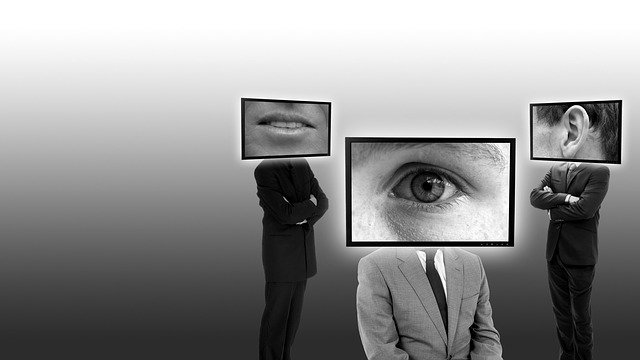
Online privacy is super important nowadays. According to statistics, hackers attack every 39 seconds at an average of 2,244 times per day. That’s super scary.
Even you like to think that no one will ever target, there always a chance that you can become a victim of a gruesome cyber attack. I say this because on average, 300,000 new malware is created every day. Hackers are constantly thinking of new ways to target their prey.
When hackers get a hold of your IP address, they can locate your geo-location, find out where you live or where you work, and then plan a strategy to steal as much from you as possible. If you still haven’t started using a VPN, maybe it’s about time that you at least consider getting one before it’s too late.
Are VPNs legal in Spain?
Yes, VPNs are legal in Spain, and in most parts of the world. But do keep in mind that anything that’s illegal without using a VPN is still going to be illegal even after using a VPN. For instance, downloading pirated content, cyberstalking, or threatening someone online.
While VPNs are legal in a lot of countries, some countries like China, Russia, Iraq, and North Korea don’t allow their citizens to use VPNs. People who are caught using one might have to pay hefty fines. For example, a man in China got fined up to 15,000 yuan (US$2,142) for using a VPN.
Are there any disadvantages to using a VPN?
As with any technology, VPNs have their disadvantages as well. So far, we’ve only talked about the benefits of using a VPN. Now we’ll take a look at some of the disadvantages that you should know about.
Some website tend to block VPNs
Most infamously, streaming services like Netflix are known to block VPNs. Similarly, there are tons of websites that block traffic coming from VPN servers.
Banking and online payment services like PayPal also tend to block VPN users due to security reasons. If you access your banking app or PayPal while connected to a foreign VPN server, your account might get temporarily blocked to prevent fraud.
Although you can get over such issues by disconnecting from the VPN server, you will have to deal with the hassle of contacting your bank to clear up any misconceptions.
Your internet speeds will suffer
If you’ve ever used a VPN before, you know that your VPN speeds tend to fluctuate after connecting to a VPN server. This is because when you use a VPN, your network traffic passes through a relatively crowded shared VPN server where it gets encrypted or decrypted.
If you’
Due to overhead encryption, data packets take longer to reach their destination. Usually, when using a reputable VPN service, you should experience a 20% to 30% drop in your internet speed.
Shady VPNs can spy on you
If you use shady VPNs, you can unknowingly put your privacy at risk. Mostly, free VPNs tend to log your browsing activities and sell it to third parties to generate revenue. Premium VPNs on the other hand don’t store user logs. ExpressVPN according to ExpressVPN extensive review, offers servers that run on RAM-disk mode. This way, every time a server restarts, all user logs get wiped out.
How can VPNs offer me privacy?
Most of us use VPNs for privacy. But if a VPN doesn’t offer any security features, there’s no point in getting it. To guarantee complete privacy, a VPN uses the following features:
No logs policy
Zero logging policies are super important. A reliable VPN service provider refrains from logging any browsing logs. When none of your browsing habits are recorded, it means that hackers, law enforcement agencies, and even your VPN provider will be unable to tell what you do online.
256-bit encryption
Without encryption, any VPN is useless. To keep all of your network traffic secure and unreadable by unauthorized entities, a VPN uses powerful 256-bit encryption. With encryption, the normal text gets converted into gibberish, making it completely unreadable.
Leak protection
VPNs offer three types of leak protection. DNS, IP, and WebRTC leak protection. When DNS leak protection is enabled, your VPN app will only use the DNS servers of the VPN service provider instead of your ISP. IP leak protection prevents your IP from leaking and WebRTC prevents your WebRTC information from leaking.
How to choose a VPN?
So, now that you know what a VPN is, let’s talk about some of the pointers you should keep in mind when you choose any VPN service to use. Here’s what you should look out for:
- Affordable pricing with discounts
- 5+ simultaneous connections
- No logs
- OpenVPN
- AES 256-Bit encryption
- Thousands of servers with shared IPs
- Live chat support
- Support for popular operating systems and devices
Which VPNs do I recommend?
Since there are hundreds of VPN providers in the market, picking just one is not easy. To recommend my top 6 favorite VPN providers in 2020, I used my in-depth testing criteria.
You can check out my testing criteria and detailed descriptions of all six providers in my best VPN blog.
Is there any alternative to VPNs?
The one alternative you can use instead of a VPN is Tor. Tor or “The Onion Router”, is a free network of servers that randomly routes your internet traffic through different nodes to hide the origin of the data source.
Even though Tor offers great anonymity, its biggest drawback is speed. Since Tor routes your traffic through several hops, it is not ideal for streaming, downloading, or torrenting. Considering this, a VPN is still the best option for online privacy.
Wrapping up!
So there you have it. I hope you now know everything about what is a VPN. Considering how difficult it has gotten to stay safe online in today’s day and age, a VPN is an essential piece of software to have on all your devices.
If you still haven’t purchased a VPN, you’re seriously risking your privacy. So what are waiting for? Go and grab a VPN subscription today and browse the web securely.
If you have any questions, leave them in the comments below and I’ll make sure to get back to you as soon as possible.
